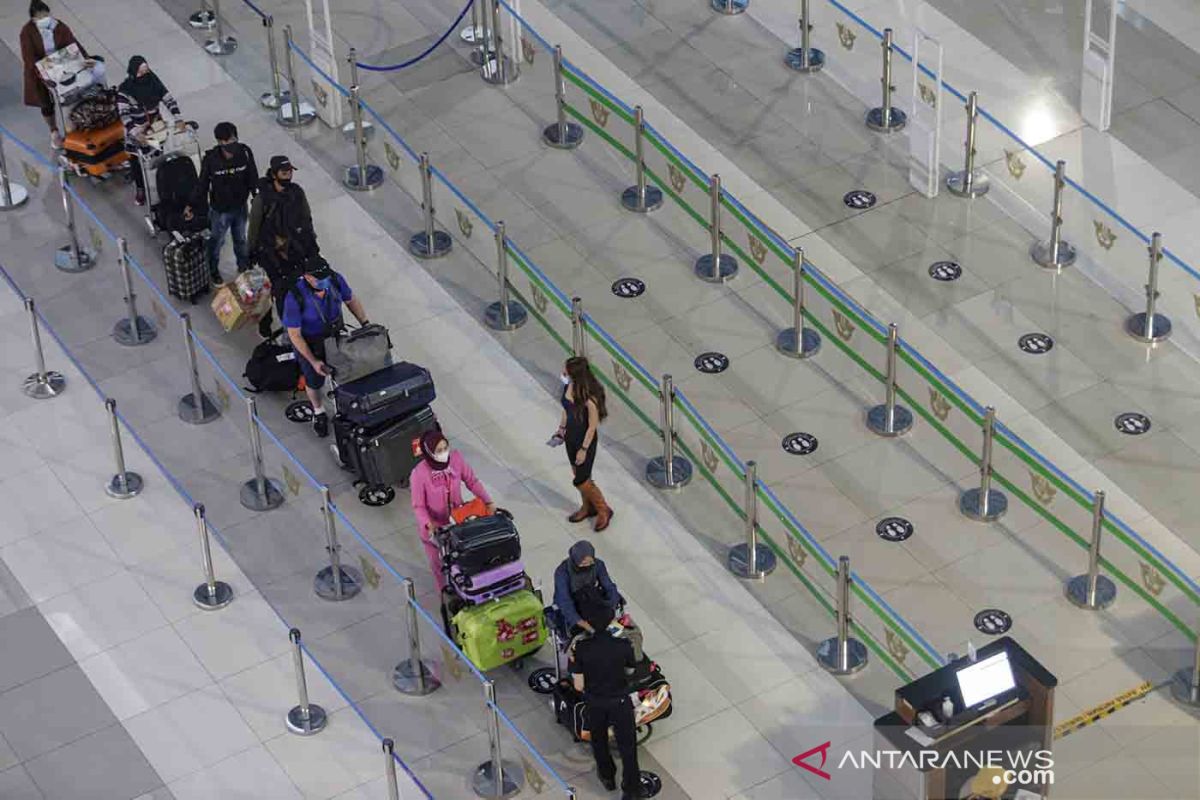"In accordance with the prevention efforts made by the government, the COVID-19 Task Force has decided to withdraw the list of 14 countries (with community transmission of Omicron) whose citizens are prohibited from entering Indonesia," spokesperson for the COVID-19 Task Force, Wiku Adisasmito, announced in a statement received here on Friday.
Adisasmito said the decision was taken since the Omicron variant has spread to 150 out of 195 countries as of January 10, 2022.
"If the entry ban is still enforced, it will make it difficult for cross-country movements, which are still needed to maintain country stability, including for national economic recovery," he explained.
The policy to open foreign travel was taken based on the results of a joint decision at a limited meeting on January 10, 2022, and has been promulgated in the Circular Letter of the COVID-19 Task Force No. 02/2022 concerning Overseas Travel Health Protocols during the COVID-19 Pandemic, he informed.
The decision to lift the entry ban has also been followed by a tightening of the criteria for foreigners, which are as stringent as the previous ones, he said.
With the lifting of the entry ban, the government has equalized the duration of quarantine for all travelers to 7x24 hours, Adisasmito informed.
The policy has been outlined in the Decree of the Head of the Task Force No. 3 of 2022 concerning Entry Points, Quarantine Places, and RTPCR Obligations for Indonesian Citizens Traveling Overseas, which came into effect on January 12, 2022, he said.
Adisasmito said that the decision is also supported by scientific findings in various countries. For example, a study conducted by Brandal et al. (2021) has found that the median incubation period for Omicron cases is three days post infection, he noted.
The initial report on the results of an epidemiological investigation of the Omicron variant in Japan in 2022 has also stated that the virus load in patients reaches the highest level on the third to sixth day after symptoms appear, he said.
An expert team of the Centers for Disease Control and Prevention (CDC) in the United States has also recommended a shorter quarantine period after it was scientifically proven that a patient's ability to infect other people is at the beginning of infection, on the first and second days, before symptoms appear two until three days later, he added.
"So, this quarantine period is a time to detect potential symptoms, ranging from someone infected to showing symptoms. Hence, the potential for transmission in the community can be avoided," he observed.
Adisasmito said that based on the results of the latest study, the symptoms of Omicron are expected to appear earlier. Therefore, a quarantine of seven days is sufficient to detect positive cases, he added.
"Moreover, detection efforts have been carried out several times with entry and exit tests as well as strict monitoring of the distribution of Omicron variants with S-Gene Target Failure (SGTF) and Whole Genome Sequencing (WGF), which is in line with WHO's multilayered strategy recommendations regarding international travel," Adisasmito said.
Related news: Taking COVID-19 booster shots not mandatory: Health Ministry
Related news: Indonesia receives 1.8 million COVID-19 vaccine doses under COVAX
Related news: MPR supports policy banning entry of foreigners from 14 countries
Translator: Katriana
Editor: Sri Haryati
Copyright © ANTARA 2022












